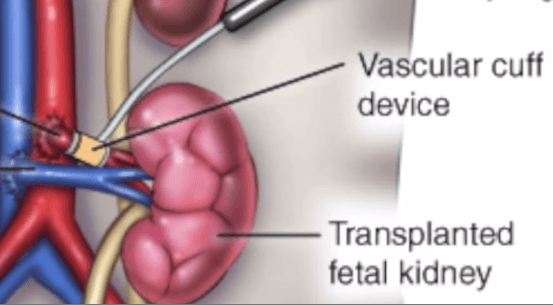The next major medical ethics debate could be growing inside the bodies of lab rats in California.
A research company in Redwood has implanted several kidneys and at least one heart from aborted human fetuses into rats.
The company, Ganogen, says it has the ability to implant a wide variety of fetal organs into animals using a device it developed to regulate the blood flow and pressure between the organs and the host animal.
Ganogen’s goal is to eventually make these fetal-sourced, animal-grown organs available to ill patients, replacing the current organ donor programs in the United States.






